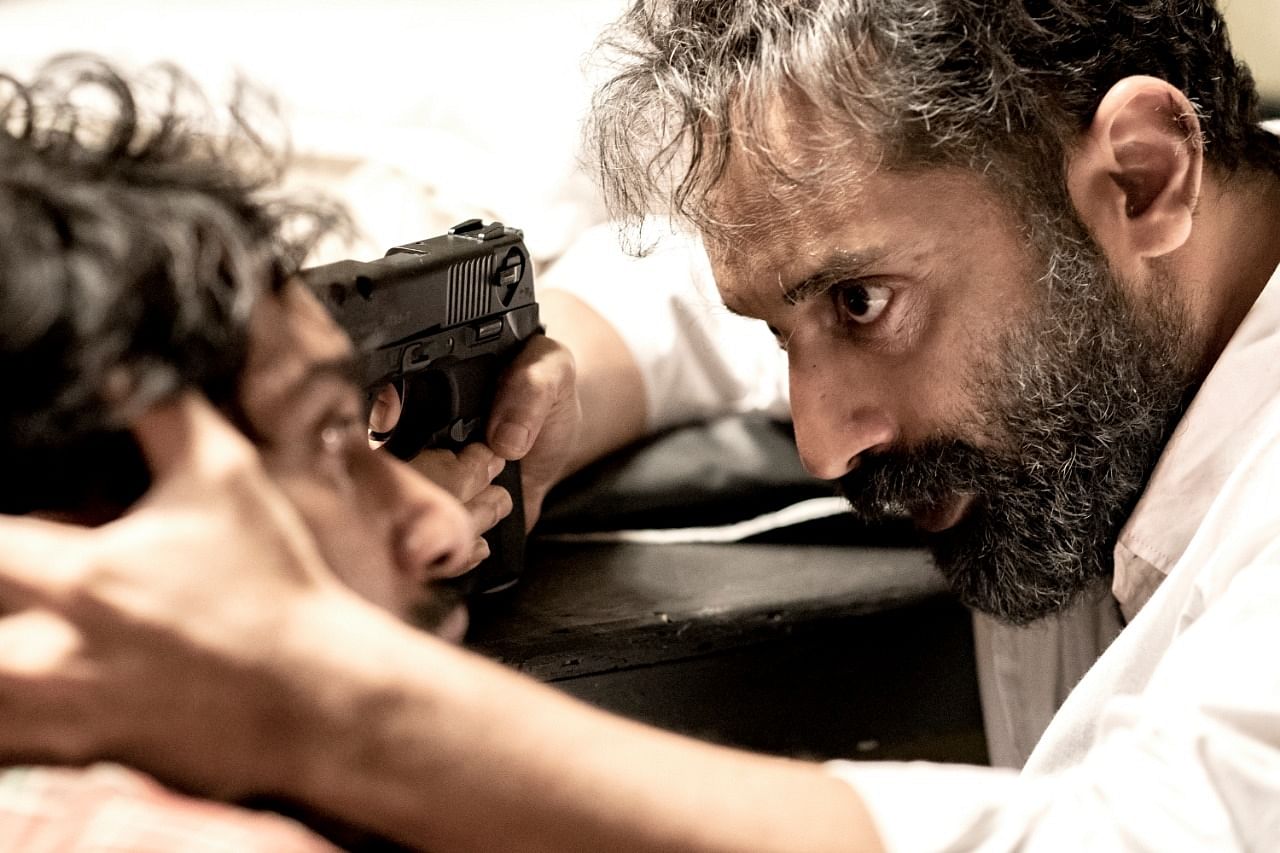
Mahesh Narayanan’s ‘Malik’, which recently dropped on Amazon Prime Video, is a tribute to Mani Ratnam’s ‘Nayakan’ (1987). Both filmmakers are self-confessed fans of ‘Godfather’ (1972). Naturally, Francis Ford Coppola’s classic crime drama is the foundation of these Indian films.
Mahesh, who edited Kamal Haasan’s ‘Vishwaroopam’ films (2013 and 2018), had discussed with the actor his interest in making a Malayalam version of the Tamil cult film. ‘Malik’, written even before Mahesh came to be known for ‘Take Off’ (2017) and ‘CU Soon’ (2020), follows the ‘Nayakan’ template.
The protagonist, in both films, is an outsider who rises to become a people’s leader. He goes against the system for the sake of the poor. He takes to smuggling not by choice but for survival.
In ‘Nayakan’, the hero justifies his acts by believing in the policy of his guardian Hussain bhai, essayed by the Kannada actor M V Vasudev Rao, who rose to fame with his portrayal of Choma in a film based on a Shivarama Karanth novel. “Anything that helps four people isn’t wrong,” says the old man. Salim Kumar, as an imam, plays a similar character in ‘Malik’. He tells the hero, “Humanity should win. That alone should win.”
‘Nayakan’ is the life story of Varadarajan Mudaliar, the underworld don who was a revered figure for the Tamil community in the slums of Dharavi in Mumbai. ‘Malik’ is reportedly based on the 2009 Beemapally police firing in Kerala. It’s a thriller that shows the effects of communal violence (between Muslims and Christians). It shows how the police and the politicians use poor people as pawns for their vested interests.
Apart from this core difference, the journey of the fisherman turned smuggler Ahammadali Sulaiman (Fahadh Faasil) in ‘Malik’ plays out exactly like Sakthivel’s (Haasan) in ‘Nayakan’.
Looming death
“He almost died when he was a six-year-old. I wish he had died then,” says Sulaiman’s mother while narrating her son’s life story. “I nearly died when I was a ten-year-old,” says Shakthivel to a police officer when he learns about a possible death sentence against him.
Right from the start, you sense death looming over the protagonist. But this early brush with death means the hero grows up to be a fearless man. It also signifies that he is the chosen one.
First crime
Personal loss forces both the heroes to commit their first crimes. Sakthivel murders inspector Kelkar, who kills Hussain bhai in the lock-up. Sulaiman murders his rival smuggler Chandran for killing innocent children. Both the scenes are cleverly filmed. We are made to believe that the murder is gruesome but the deceased's face isn't shown.
Following this act of revolt, they transform into protectors in the eyes of the people. Sakthivel becomes Velu Nayakar. He is affectionately called Nayakar Ayya. Sulaiman too earns huge respect and gets the name of Ali Ikka.
In both films, the cops are sent back empty-handed when they come looking for the murderer. People refuse to identify the killer in ‘Nayakan’. Interestingly, the hero is bold enough to own up to the crime in ‘Malik’. But he dares the police officer to arrest him in front of his people.
Shades of grey
Neenga nallavara kettavara (Are you a good man or a bad man?) is a famous dialogue from ‘Nayakan’. Velu Nayakar and Ali Ikka struggle with guilt throughout their lives. Their characters are marked with shades of grey.
They help people protect their land by dominating those in power. In the process, Nayakar and Ali Ikka lose their respective sons. Their family members detest their acts. Nayakar’s daughter leaves him and marries an honest police officer to finally live on the right side of the law. Ali Ikka’s mother goes away from him and hopes he gets punished by the law.
System's U-turn
Both the films show the police sympathising with the protagonist. His actions get some validation from the system. “When so many people hold you in high esteem, it seems I was wrong. Our aims are the same. The only difference is I wear a uniform and you don’t,” the inspector and Nayakar’s son-in-law (Nasser) tells the don. “I have realised the reason behind your actions,” a sub-inspector tells Ali Ikka.
Price of crime
Eventually, the protagonists pay the price for their crimes. But the law doesn’t claim their heads. Two young people, whose childhood was affected by the heroes’ activities, take revenge on them. They overlook the helpful deeds of the protagonists and react from a personal point of view.
Performances
Kamal Haasan’s emotional performance suits the personal nature of the story. He is extraordinary as the aging don. ‘Malik’ isn’t just the story of the hero. Its focus is on the dangers of communal hatred. Fahadh Faasil performs to the demands of the script. His poignant performance and powerful dialogue delivery don’t overpower the narrative. Unlike ‘Nayakan’, which is focused on one hero, ‘Malik’ tells the stories of several interesting characters.